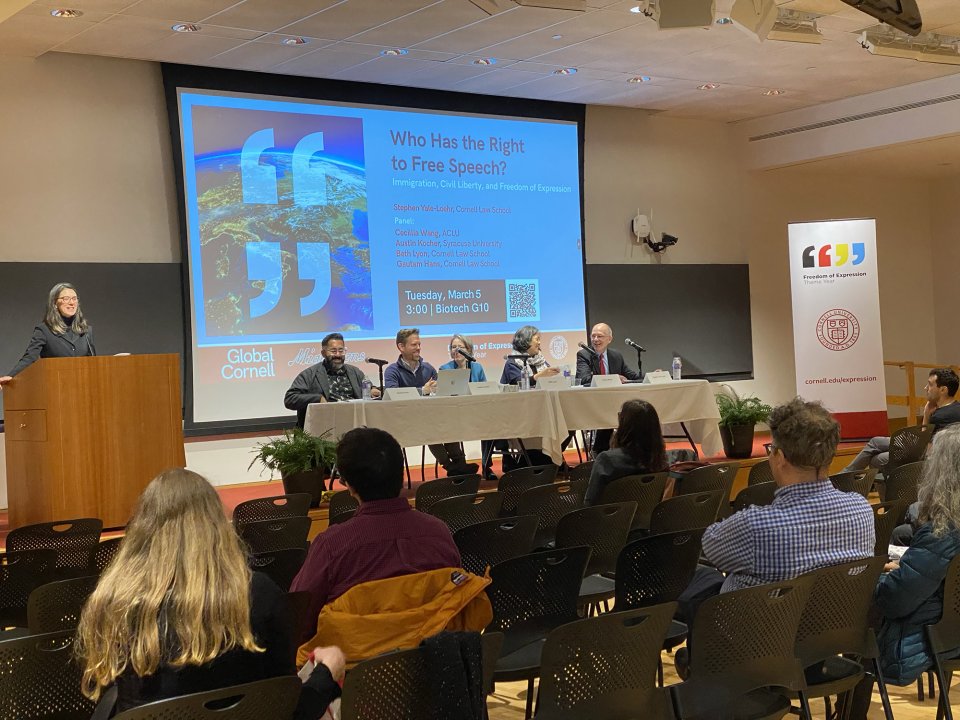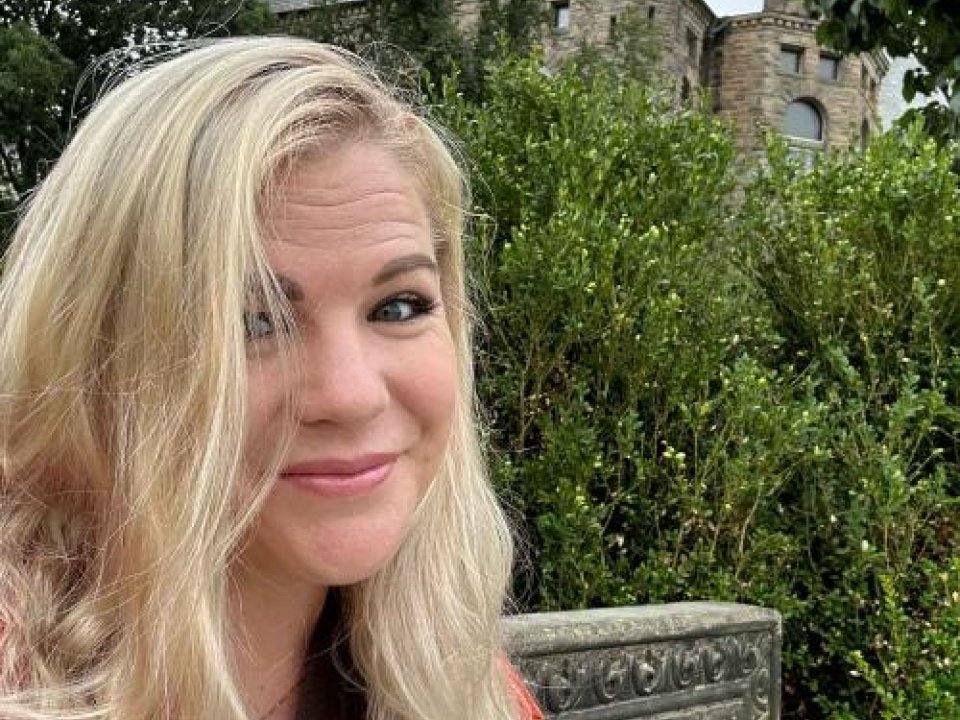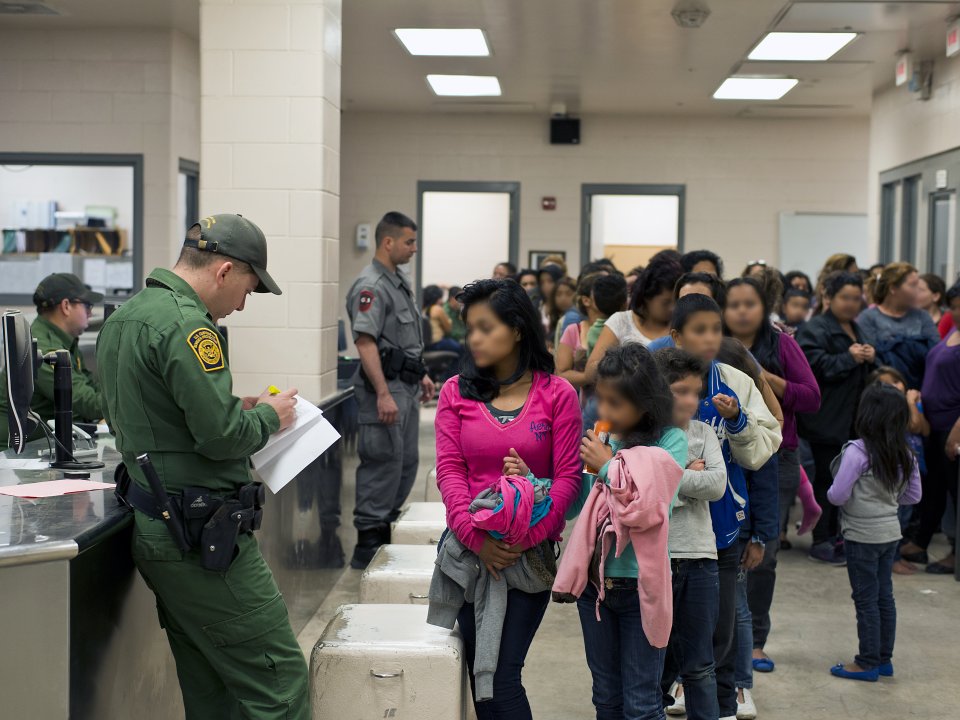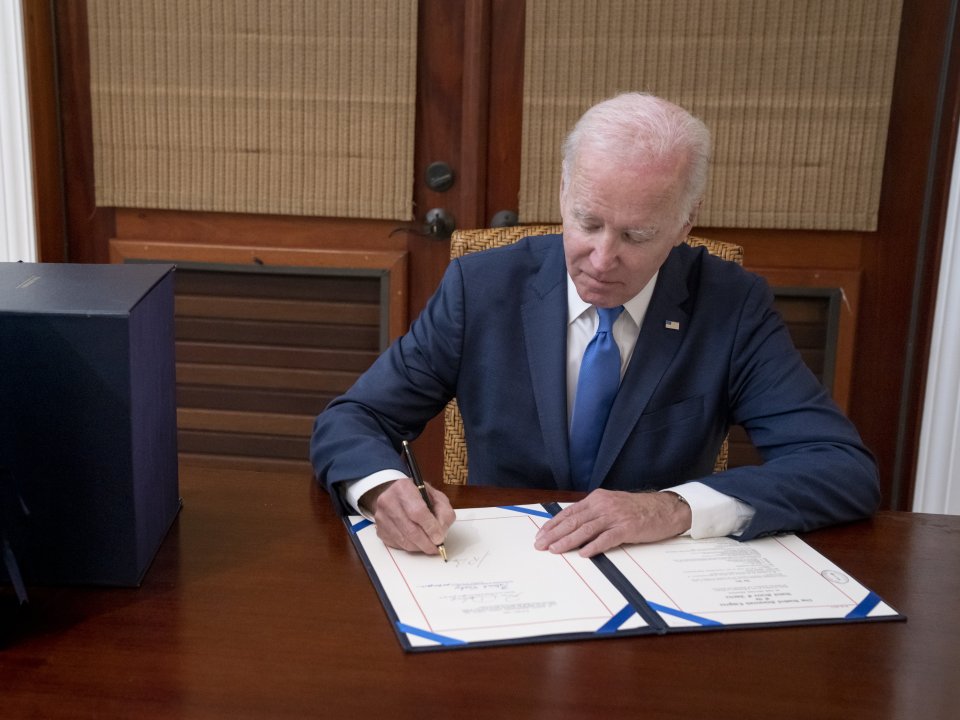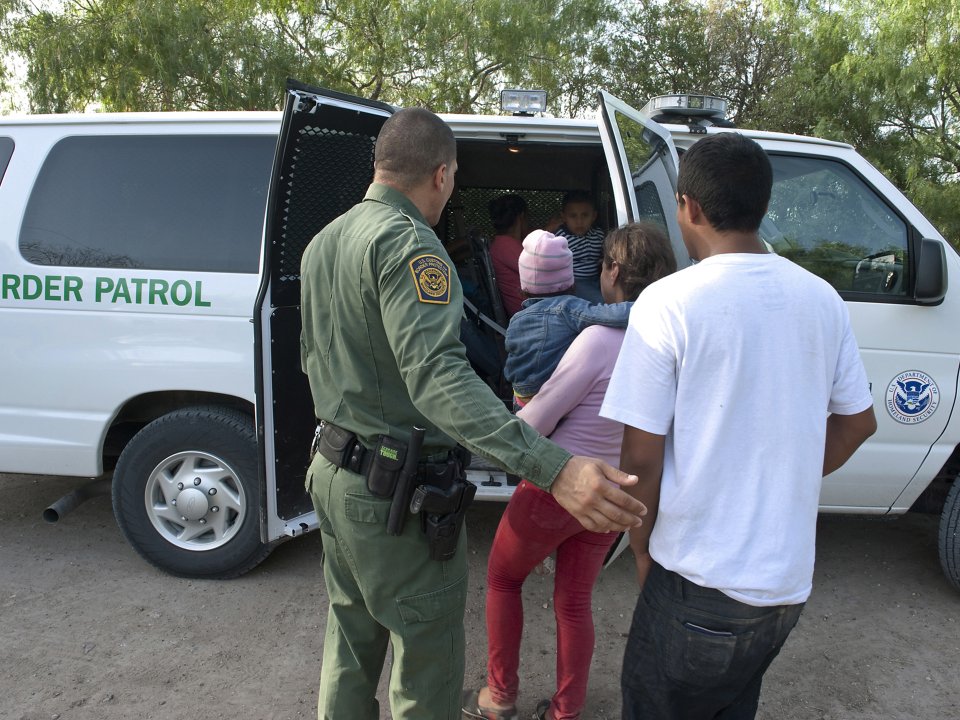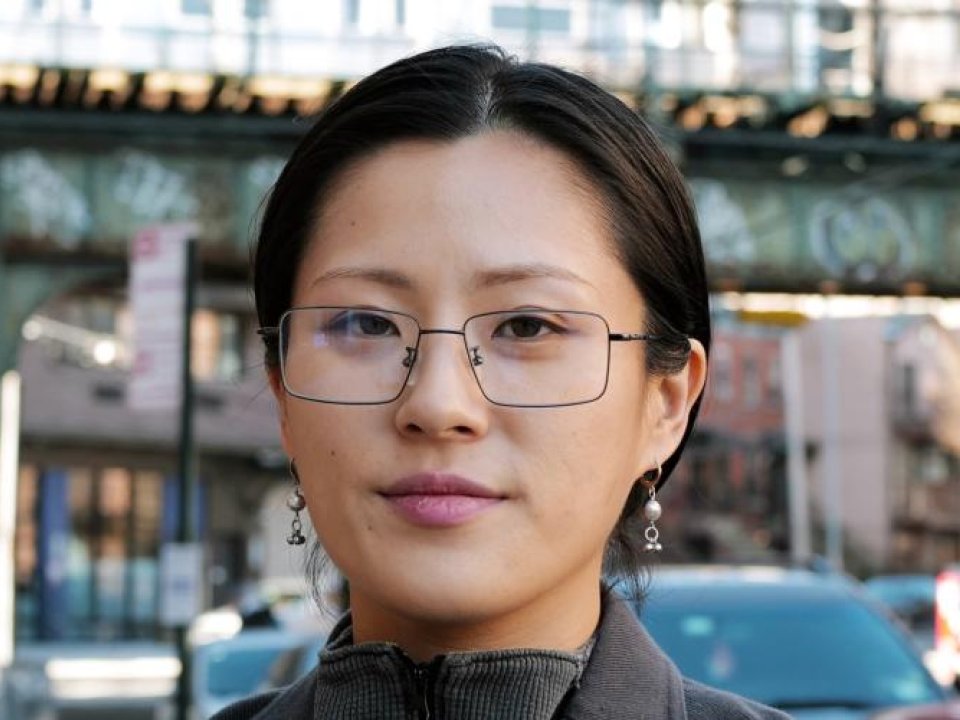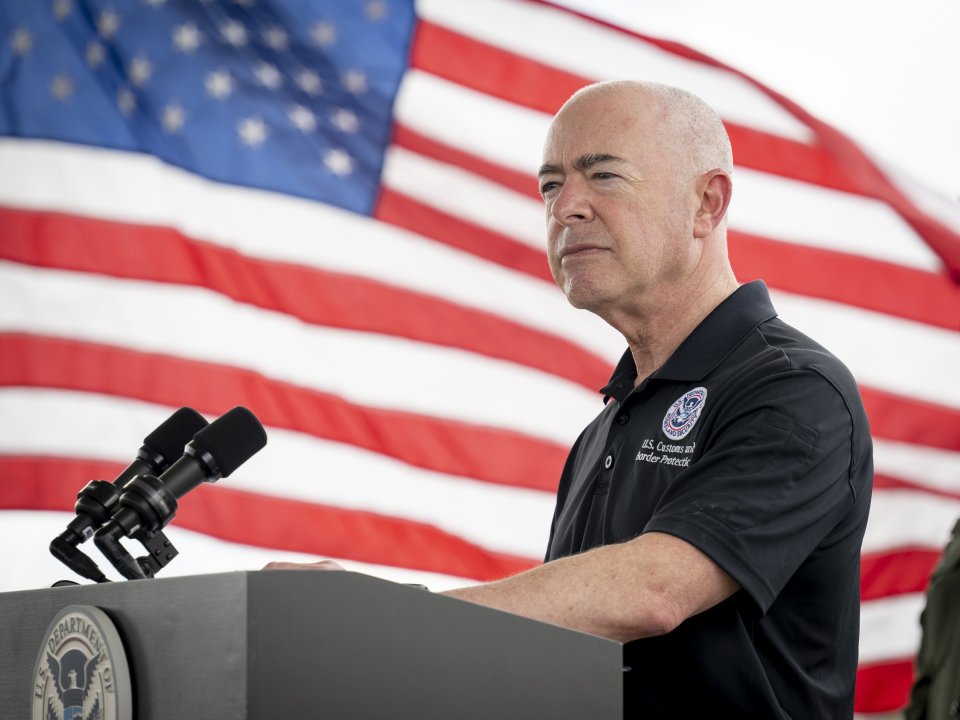News
A panel of faculty and scholars reflected on how freedom of expression can be improved for everyone, including noncitizens, at a March 5 global free expression event. "We have an obligation to speak up and to fight for rights to be applied fairly and evenly," said Cecillia Wang, deputy legal director of the American Civil Liberties Union.
History doctoral student Megan Jeffreys is using runaway slave ads as one of the foundations of her work.
Stephen Yale-Loehr, professor of immigration law, notes “Presidents do have a lot of authority when it comes to immigration, because immigration touches on sovereignty and foreign relations. However, any president's authority is not unlimited.”
"The number of newly arriving immigrants who have come to New York to establish new homes in our communities and flee life-threatening danger in their countries of birth has captured the nation's attention.
While New York has historically been a destination for millions of immigrants, the current situation has exposed an urgent problem in our immigration legal services infrastructure," says Stephen Yale-Loehr, professor of immigrations law practice and Marielena Hincapié, distinguished immigration scholar at Cornell Law School.
“President Biden has broad powers under the immigration statute, but they are not unlimited. Section 212(f) of the Immigration and Nationality Act allows a president to suspend the entry of noncitizens who are ‘detrimental to the interests of the United States,’ but that doesn’t mean he can just shut the border to everyone,” Stephen Yale-Loehr, an immigration law expert, previously told CNN.
"Whether it’s a murmuration of starlings, herds of wildebeest crossing the plains of Africa, or shoals of salmon leaping up a cascading river, the mass migrations of animals, birds and fish are some of the most spectacular events in the natural world. But human activity and other pressures are pushing many of these creatures towards oblivion."
“When people who look like you appear to be targeted, either by the government or others in your community, that is distressing,” said Neil Lewis Jr. ’13, associate professor of communication in the College of Agriculture and Life Sciences and co-author of “Deportation Threat Predicts Latino U.S. Citizens and Noncitizens’ Psychological Distress, 2011-2018,” which published Feb. 20 in Proceedings of the National Academy of Sciences.
Youbin Kang is researching the impact of immigration status on workplace precarity with Shannon Gleeson, co-chair of the Migrations Initiative.
“Getting humanity to work collaboratively at a global scale underpins most of the existential challenges we face, from climate change and environmental pollution to biodiversity loss and ecosystem collapse—this at a time when earnest collaboration even at local scales often seems elusive,” notes Cornell Professor of Wildlife Health & Health Policy Steven A. Osofsky, lead author of the study. “However, if we can actually stop hunting, eating, and trading bats, stay out of their caves, keep livestock away from areas where bats are concentrated, and if we can stop deforesting, degrading (or even start restoring) their natural habitats, we can indisputably lower the chances of another pandemic.”
"Mayorkas made history twice when he was confirmed as D.H.S. Secretary, the following February. Born in Cuba and raised in Los Angeles, he became the first immigrant ever to head the department. He is also D.H.S.’s first homegrown leader; typically, secretaries have burnished their standing elsewhere in government or in public life. Marielena Hincapié, a former director of the National Immigration Law Center, told me, 'Immigration was going to be front and center whether Biden wanted it to be or not. How would Democrats be able to present a different vision, and to talk about it? They had someone in Mayorkas.'"

